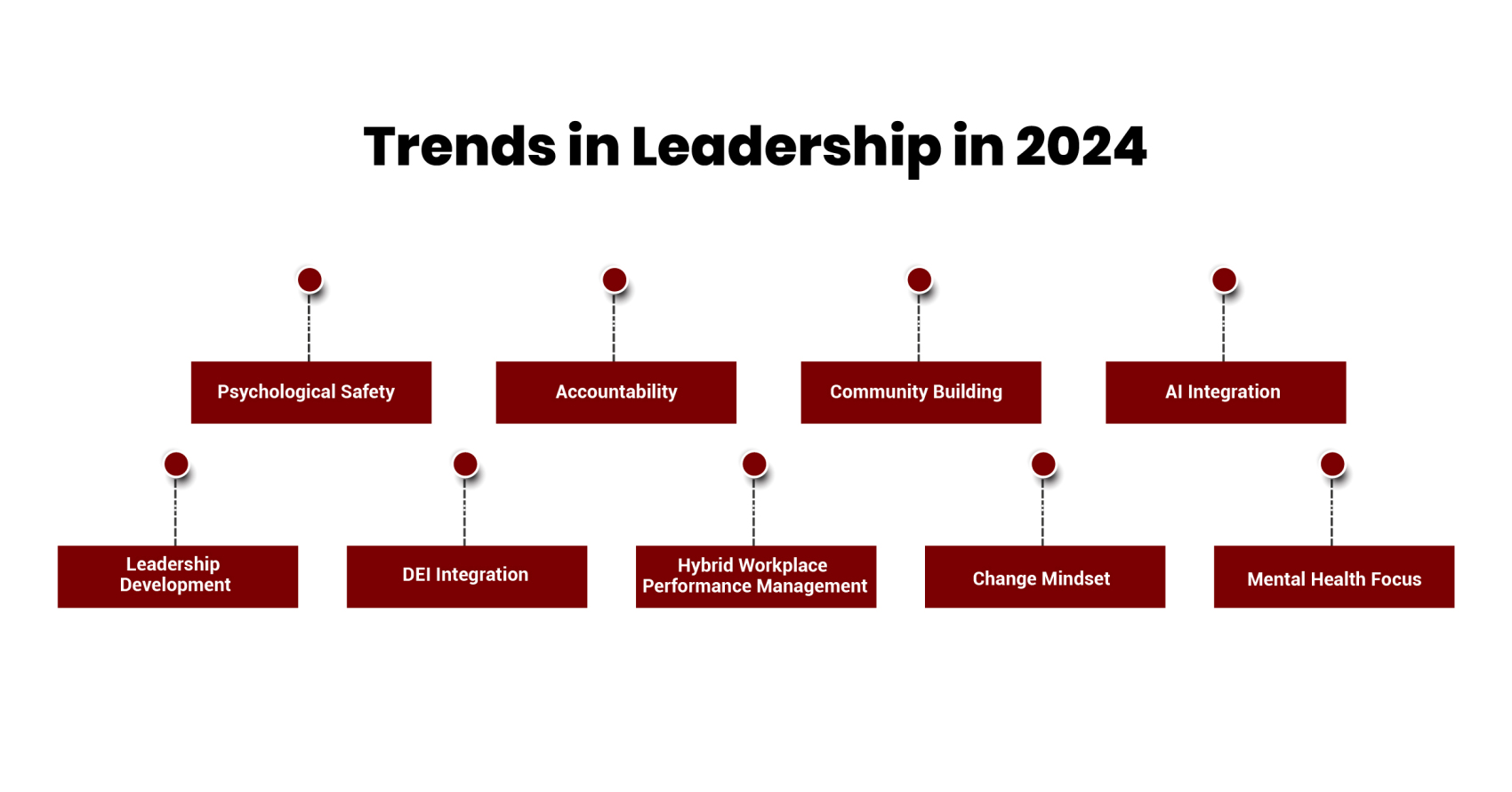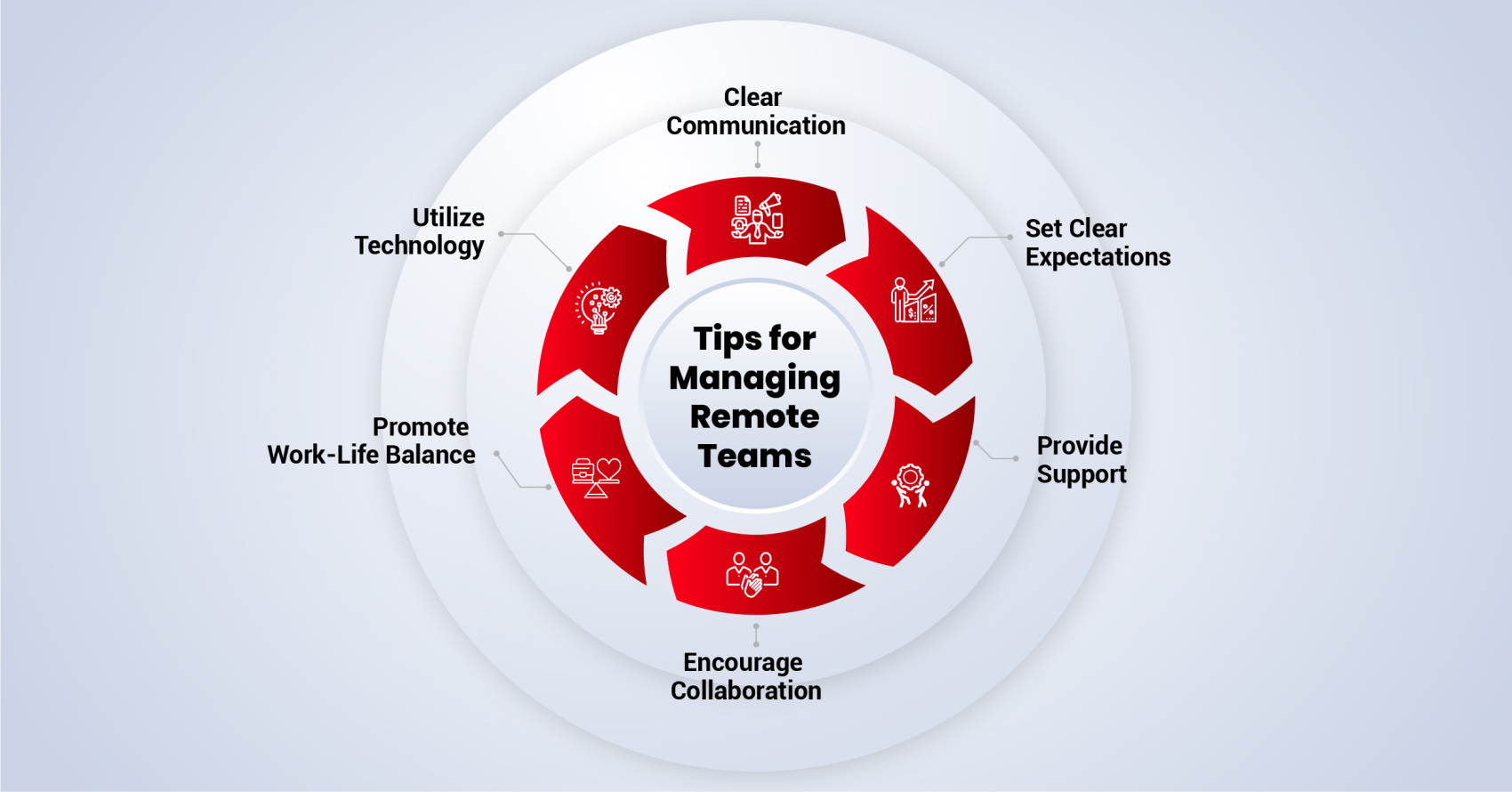Leadership in 2024 and beyond is a dynamic force that drives organizations forward in an ever-changing world. As we steer through technological advancements, shifting workplace dynamics, and changing societal norms, the role of a leader has never been more critical. Effective leadership is about adaptability, empathy, and strategic vision. It's about inspiring, guiding, and empowering teams to achieve greatness.
In this blog, we explore the changes and trends shaping leadership in 2024, and how leaders can embrace these changes to lead their organizations towards success.
Leadership is more than just a title or a position; it's about inspiring and guiding others towards a common goal. At its core, leadership is about understanding people and helping them reach their full potential. A true leader listens attentively, empathizes deeply, and communicates with clarity and purpose. Demonstrating integrity and honesty, leaders lead by example, setting high standards for ethical conduct.
In today's fast-paced world, the role of a leader is constantly evolving. It's no longer enough to simply give orders; leaders must be adaptable and open to change. They need to be able to navigate through uncertainty and lead their teams towards success.
Leadership is a continuous journey of growth and learning. Effective leaders embrace their fallibilities, viewing mistakes as opportunities for improvement. They remain humble, perpetually seeking knowledge from diverse sources, and striving for continuous improvement.
It is a transformative force that inspires, motivates, and empowers others to achieve greatness. It embodies a blend of wisdom, empathy, and action, essential for success in the evolving world of leadership.
Leadership plays a pivotal role in organizations by providing direction, inspiring action, and driving change. Effective leaders motivate teams, foster innovation, and cultivate a positive work environment. They guide employees through challenges, aiding in their personal and professional development. In the ever-evolving landscape of 2024 and beyond, strong leadership is essential for navigating complexities and seizing opportunities. Sound leadership practices can lead to enhanced productivity, heightened employee morale, and ultimately, organizational triumph.
Leaders are key players in navigating change. Their strategic positions within organizations make them the first to experience and respond to evolving workplace expectations and cultural shifts. Whether in middle management or the C-suite, leaders must skillfully guide their teams through the ups and downs of change. Embracing change as an opportunity for innovation and growth is crucial. The Center for Creative Leadership highlights recognition and understanding as the foundational steps in managing organizational changes. By promoting adaptability and resilience, leaders inspire their teams to thrive amidst uncertainty. Effective communication and empowering team members are essential strategies. Leading by example, they demonstrate adaptability, resilience, and a positive attitude towards change, guiding their teams towards success.
8 Strategies to lead effectively in an evolving landscape are as follows:
1. Embrace Agility: Cultivate a mindset that embraces change, enabling you to pivot strategies swiftly in response to evolving circumstances. Flexibility is paramount in navigating uncertainties. Leaders who embrace agility are better positioned to respond to market shifts, technological advancements, and unforeseen challenges. They are proactive in seeking new opportunities and adapting their approaches to meet changing needs.
2. Prioritize Clear Communication: Effective communication is essential in times of change. Keep your team informed and engaged through transparent communication. Articulate the rationale behind changes, fostering understanding and alignment. Leaders who communicate clearly build trust and credibility with their teams, paving the way for smoother transitions and greater collaboration.
3. Foster Empowerment: Encourage autonomy and decision-making among team members. Empowered teams exhibit greater resilience and adaptability in the face of change. By empowering your team, you enable them to take ownership of their work and contribute more meaningfully to the organization's goals. This fosters a sense of ownership and commitment, driving performance and innovation.
4. Exemplify Empathy: Acknowledge that change can evoke varied emotions. Demonstrate empathy, actively listen, and offer support to team members navigating transitions. Leaders who show empathy create a supportive work environment where individuals feel valued and understood. This promotes trust and collaboration, essential elements for successful change management.
5. Champion a Culture of Learning: Promote continuous learning to stay abreast of emerging trends and technologies. Adopt novel ideas to thrive in a dynamic environment. Leaders who prioritize learning are better equipped to lead through change. They are open to new perspectives and ideas, fostering a culture of innovation and adaptability within their teams.
6. Cultivate Resilience: Equip your team with the tools to bounce back from setbacks. Foster a supportive environment where failures are viewed as opportunities for growth. Resilient teams are better able to navigate challenges and emerge stronger from adversity. By fostering resilience, you create a culture that embraces change as a catalyst for growth and improvement.
7. Lead by Example: Your actions serve as a blueprint for your team. Model adaptability and a positive attitude toward change, inspiring your team to embrace new challenges. Leaders who lead by example demonstrate the behaviors and attitudes they expect from their teams. This creates a culture of accountability and integrity, driving organizational success.
8. Seek Feedback: Regularly seek input from your team and stakeholders. Use feedback to refine your change management strategies and enhance team effectiveness. Leaders who seek feedback demonstrate a commitment to continuous improvement. They are open to constructive criticism and use feedback to make informed decisions that benefit the team and the organization.
In 2024, the landscape of leadership is experiencing profound shifts, driven by technological advancements, evolving workplace dynamics, and changing societal norms. Understanding these trends is crucial for leaders aiming to lead the complexities of leadership in this era effectively.

Managing remote teams requires a unique set of skills and strategies to ensure productivity and cohesion.

6 tips for leading remote teams effectively are:
In conclusion, leadership in 2024 and beyond requires adaptability, empathy, and strategic thinking. Leaders must be agile in navigating change, fostering open communication, and empowering their teams. It is crucial to recognize the importance of psychological safety, accountability, and community building in leadership.
Additionally, integrating AI, promoting diversity and inclusion, and managing performance in hybrid workplaces are key trends shaping leadership in 2024. Leaders must also prioritize mental health and work-life balance for themselves and their teams. By embracing these changes and trends, leaders can effectively guide their organizations towards success in the dynamic landscape of the future.
This website uses cookies to enhance website functionalities and improve your online experience. By browsing this website, you agree to the use of cookies as outlined in our privacy policy .